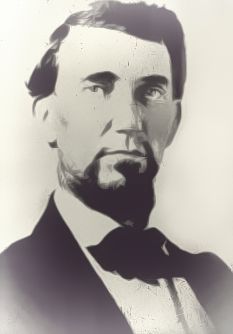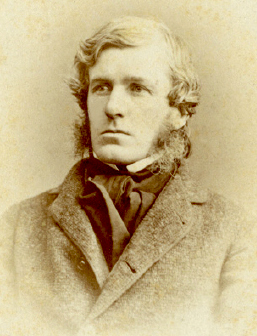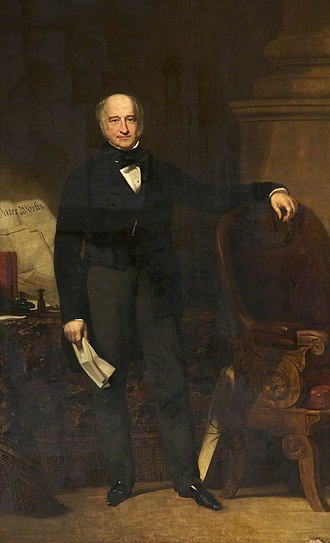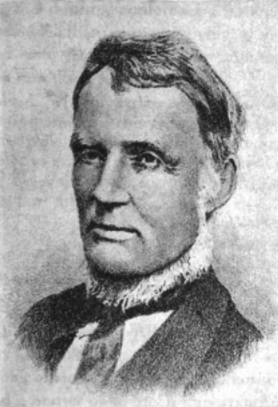Discover Your Roots
SIGN UPDiscover Your Roots
SIGN UPElkanah is a male name of Hebrew origin, meaning "God Bought." In the First Book of Samuel, Elkanah was the husband of Hannah and the father of her children, including Samuel. He was a devout man who annually took his family on a pilgrimage to the holy site of Shiloh. Elkanah is described as originating from Zuph, specifically Ramathaim-Zophim, which was part of the tribal lands of Ephraim. Although he practiced polygamy, he favored Hannah, his first wife. According to the Talmud, Elkanah is listed as a prophet, along with his wife and son. The name Elkanah reflects a deeply rooted connection to faith and the belief in divine providence.

Elkanah Settle (1 February 1648 – 12 February 1724) was an influential English poet and playwright of the late 17th century. Born in Dunstable, he gained early recognition with his first tragedy, "Cambyses, King of Persia," which caught the attention of the Earl of Rochester, who supported Settle as a rival to John Dryden. Settle's "The Empress of Morocco" further solidified his success and was the first play to be printed with illustrations, making it highly valuable. His career was marked by a contentious relationship with Dryden, resulting in a series of pamphlets and replies. Settle's involvement in political agitations and shifting allegiances eventually led to his appointment as city poet and a unique practice of writing occasional poems for wealthy patrons. In his later years, Settle's circumstances declined, and he became a poor brother of the Charterhouse, where he eventually passed away. His legacy lives on in works like "Love and Revenge," "The Virgin Prophetess," and "The City Ramble." Despite his prominence in the 17th century, Settle's obscurity has become a subject of curiosity in modern times, with references to his works surfacing in unexpected places, such as the naming of a Wetherspoons pub in Dunstable.

Elkanah Brackin Greer (October 11, 1825 – March 25, 1877) was an antebellum cotton planter, merchant, and a general in the Confederate States Army during the American Civil War. Born in Paris, Tennessee, Greer moved to Mississippi and participated in the Mexican–American War as a member of the 1st Mississippi Rifles. He later settled in Marshall, Texas, and became a prominent figure in the region, marrying Anna Holcombe and having five children.Notably, Greer became the grand commander of the secretive Knights of the Golden Circle organization in 1859. As the Civil War escalated, he enlisted in the army and played a significant role in various battles, earning a promotion to brigadier general in 1862. Following the war, he returned to civilian life as a planter and merchant.Greer's legacy is intertwined with his military service and his impact on the Confederate cause, as well as his contributions to the Southern way of life during the antebellum era. His story reflects the complexities and challenges faced by individuals during a tumultuous period in American history.For those interested in delving deeper into Greer's life and contributions, various references and external links provide additional insights into his legacy and historical significance.

Elkanah Billings (May 5, 1820 – June 14, 1876) is renowned as Canada's first paleontologist. Born in Bytown (Ottawa) on a farm by the Rideau River, now known as Billings Estate, he grew up in a family of six siblings. Initially educated in law, he was called to the Canadian bar in 1845. Billings founded the Canadian Naturalist (and Geologist) journal in 1856 and later transitioned to become the first paleontologist for the Geological Survey of Canada (GSC) in 1857. Throughout his lifetime, he identified 1065 new species and 61 new genera, making significant contributions to the field of paleontology. He also discovered Aspidella, the first documented fossil of the Ediacaran biota. Despite marrying Helen Walker Wilson in 1845, the couple remained childless. Billings' contributions to paleontology are well-documented in his publication "Palaeozoic Fossils." His legacy continues to be recognized and celebrated, shedding light on his extraordinary impact on the scientific community.

Sir Elkanah Armitage DL (6 September 1794 – 26 November 1876) was a prominent British industrialist and influential Liberal politician. Born in Lancashire, Armitage began his career in the cotton industry, ultimately becoming a successful businessman and employer. His political career saw him actively involved in various movements, serving as the Mayor of Manchester from 1846 to 1848 and being knighted by Queen Victoria in 1849 for his exemplary service during a crisis the previous year. Armitage also made unsuccessful attempts to enter Parliament and served as High Sheriff of Lancashire. Known for his pacifist stance and opposition to the Crimean War, he was a close friend and supporter of John Bright and the Anti-Corn Law League. Additionally, he held significant roles in educational and healthcare institutions, such as Chairman of the Governors of the Manchester Grammar School and as a Governor of Manchester Royal Infirmary. Sir Elkanah Armitage passed away in 1876, leaving behind a substantial estate valued at £200,000, equivalent to over 14 million pounds today.

Elkanah Walker (1805–1877) was an American pioneer settler in the Oregon Country and a dedicated missionary, known for his influential work and contributions in the region. Born in Maine, Walker received his education at the Bangor Theological Seminary. Initially aiming to serve in Africa, he was redirected to the Oregon Country by the American Board of Commissioners for Foreign Missions. He married fellow missionary Mary Richardson and together, they had eight children while establishing the Tshimakain Mission, where they studied the local language and shared their Protestant faith with the Spokane People. Notably, they printed the Spokane Primer, the first book written in Washington. The tragic event of the Whitman Mission massacre and Walker's subsequent relocation to Oregon City marked a significant turning point in his life. Later, Walker settled in Forest Grove, Oregon, where he engaged in farming, preaching, and actively contributed to the establishment of Congregational churches. His legacy also includes serving as a member of the first Board of Trustees of Whitman College. Elkanah Walker passed away in 1877, leaving behind a lasting impact on the Oregon Country and the missionary work in the region.
All images displayed on this page are sourced from Wikipedia or Wikimedia Commons.We use these images under their respective Creative Commons or public domain licenses. Wherever applicable, author attributions and license information are provided. If you believe an image is used incorrectly or outside its license terms, please contact us so that we can review and correct the issue.